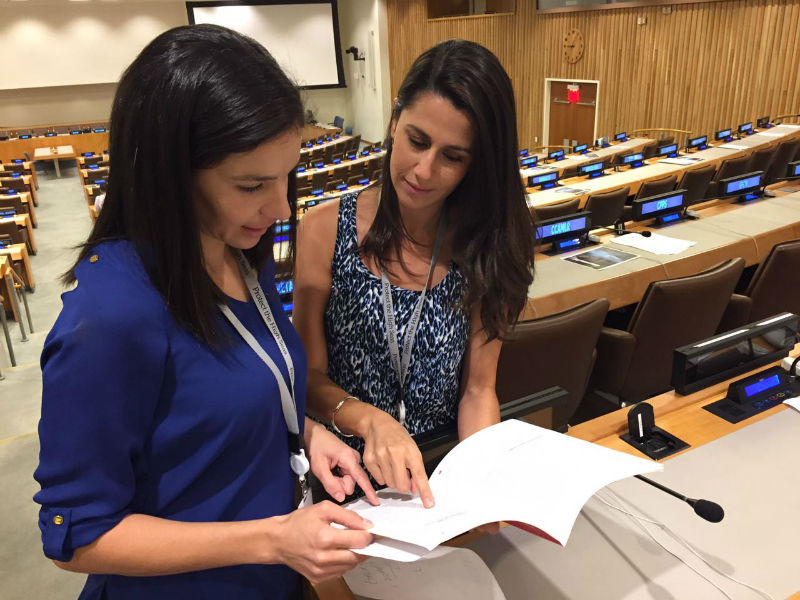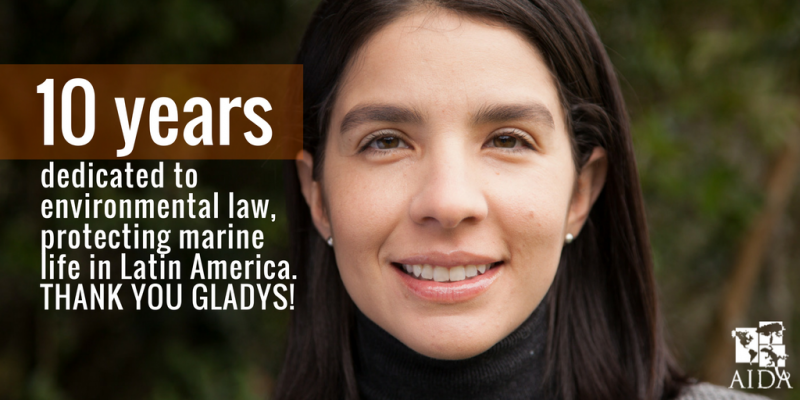By Gladys Martínez
This month I’m celebrating my tenth anniversary with AIDA. For a decade now, I’ve been working for environmental justice and realizing one of my lifelong dreams: defending that which has no voice.
In all this time, my best clients have been the oceans and their coasts.
Experience has taught me that life depends on the oceans. That’s why I was happy to spend my anniversary working to create a new treaty to protect life in the high seas.
The high seas are considered international waters, and because they belong to no country, there is no legal protection for the plants and animals that call them home.
A treaty that provided that protection would give a second chance to the oceans and to those who most depend on them: all of us.
Throughout my career as an environmental attorney, I’ve worked to limit the negative impacts of illegal and excessive fishing. On behalf of AIDA, and in alliance with our partner organizations, I’ve used international law to promote sustainable fishing and the conservation of wetlands, mangroves, and coral reefs.
During the last several years I’ve had the honor of working beside Sandra Moguel, AIDA’s marine attorney in Mexico. Because of Sandra’s dedication and leadership, we’ve been able to preserve Mexico’s ocean, coastline and the communites threatened by short-sighted development.
Sandra recently moved on from AIDA to work with our partners at the Mexican Center for Environmental Law (CEMDA), as Director of their Southeast Regional Office. Though I, and all of us at AIDA, will miss having her by our side, her new position fills me with great hope for Mexico, and the fight to defend the country’s rich environmental heritage.
Sandra’s work to protect Mexico’s coastal wetlands, rivers, and oceans will not soon be forgotten. We will build upon her successes and continue the fight to preserve our region’s waters and defend the communities that depend upon them.

That fight took me most recently to New York City, with the High Seas Alliance, to assist in the development of the high seas treaty.
This year I’ve participated in two sessions of the treaty’s Preparatory Committee, alongside State representatives and civil society. We aim to complete the agreement within two years. It will be implemented under the United Nations Convention on the Law of the Sea.
As a representative of AIDA, the only Latin American organization involved in the treaty’s planning meetings, I’m working to ensure the high seas recieve the same protections as the national waters we’ve fought so long to defend.
The high seas treaty is a truly collaborative effort that holds great hope for the protection of our planet’s international waters.
As a Costa Rican, I feel a responsibility to care for the natural heritage of Latin America.
I also believe in the importance of creating marine reserves in international waters. Doing so would reduce the pressure of fishing on marine resources, create a more balanced environment, and ease the stress ecosystems and their inhabitants face when adapting to climate change.
The international waters that surround our region are blessed with many areas of great importance to the high seas, known as “ecologically significant areas.” They are:
Protecting the high seas is vital to providing a safe space for the feeding, breeding, and growth of many important marine species.
As I look forward to another 10 years, my dream remains the same as it ever was: working to protect these great creatures and the waters they call home; giving them a voice; and advocating for the preservation of our region’s greatest natural treasures.
